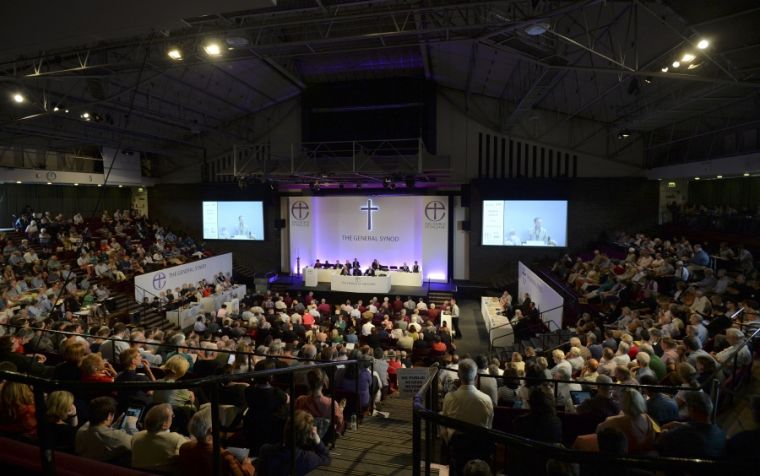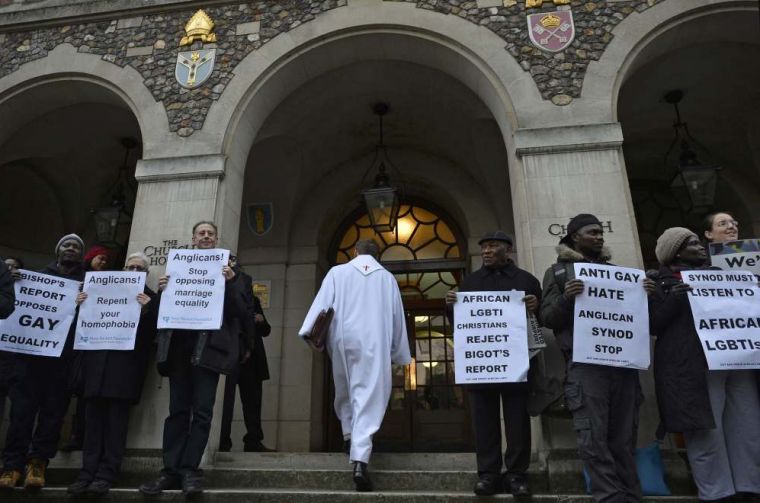Leading evangelical condemns CofE General Synod: 'God's word was mocked openly'

A leading evangelical is the latest to speak out in condemnation of the Church of England's latest move towards affirming LGBT equality.
Susie Leafe, director of the conservative group Reform, has condemned the latest General Synod meeting which voted to condemn 'conversion therapy' and also voted to consider liturgical support to Christians who 'transition' from one gender to another.
Her paper comes after Archbishop Nicholas Okoh, leader of the Anglican Church in Nigeria, slammed the synod for 'false teaching' and warned that it is in 'grave spiritual danger'.
Leafe also warns that the future of the Church is imperilled.
'Again and again, both the decisions made, and the manner in which they were made, showed scant regard for Scripture or the traditions of the Church. Instead, members were asked to base their decisions on emotional stories or the impact of secular headlines,' she writes.
'More worryingly, perhaps, was the atmosphere of the chamber; God's word was mocked openly and decisions were made lightly, with arrogant laughter. As one member put it: "God is not mocked. The laughter and lack of respect for those who bravely gave the alternate case was beyond words. Bruised, battered, bullied, betrayed, bewildered."'
Criticising the debate on Jayne Ozanne's private member's motion describing 'gay conversion therapy' as harmful, Leafe says it was 'chaired poorly' by the Bishop of Manchester, David Walker. 'At key points in the debates members were called to share stories of those who had committed suicide, but very few conservatives were called to speak.'

Leafe also writes that there are different understandings around 'gender dysphoria' and gender identity. 'The preparation of liturgy to mark gender transition raises substantial theological and pastoral issues,' she says.
She complains that the synod rejected an amendment to another motion which stated: 'Urge all bishops, clergy, and lay people at this time of anxiety and uncertainty to take every opportunity to commend to all the people of England faith in Jesus Christ, who is King of kings, the Prince of peace and the Hope of every nation.'
Leafe concludes: 'In the space of four days, the General Synod of the Church of England have, in effect, rejected the doctrines of creation, the fall, the incarnation, and our need for conversion and sanctification. Instead we have said that we are "perfect" as we are, or as we see ourselves, and that the Church should affirm us and call on God to validate our choices. No wonder we do not want to proclaim Christ's unique identity and significance for all people.
'We have chosen to understand the world through secular reports, unconscious bias training, the teaching of other religions and the results of polls and media headlines, rather than the unchanging word of God.
'Paul warns us what happens when we do this in Romans 1:28: "And since they did not see fit to acknowledge God, God gave then up to a debased mind to do what ought not to be done."'
But God does not abandon his people, she says, noting the recent consecration of Andy Lines as a missionary bishop to Europe by 11 leaders of Anglican provinces and three Archbishops, at the instigation of the conservative GAFCON fellowship headed by Archbishop Okoh.
'Don't fear – we are not alone – but decisions will need to be made,' she warns.
Jayne Ozanne, a member of General Synod who advocates for the LGBQ community, told Christian Today: 'I don't think the majority of synod members will recognise Susie's description of synod at all. It seems she and others are set on depicting synod's considered decisions in a poor light in order to suit their own purposes. Saying we are not committed to scripture and mission is just ridiculous, as are their assertions that God's word was mocked. I begin to wonder what their real objective is?'
Meanwhile, by contrast, Bishop Walker has written his own blog for Via Media News, praising the synod.
'In two debates, over consecutive days, attention was turned first to the practice of "conversion therapy" and then to support for those who have transitioned. Both debates were characterised by the passion, courtesy and good humour that had been heard in February. Beyond this, Synod showed an overarching desire to hear the voices of LGBT+ people, whether expressed directly or through their stories being shared by their friends. And most important of all, we heard from a Synod that wanted decisive change and action now. Members listened to, but clearly rejected, demands that these matters required further study, be it theological or scientific, ahead of any decision.'
He adds: 'Synod has set its new tone, and begun to speak compassionately and clearly in the voice it has found. I look forward to hearing what it says next.'











